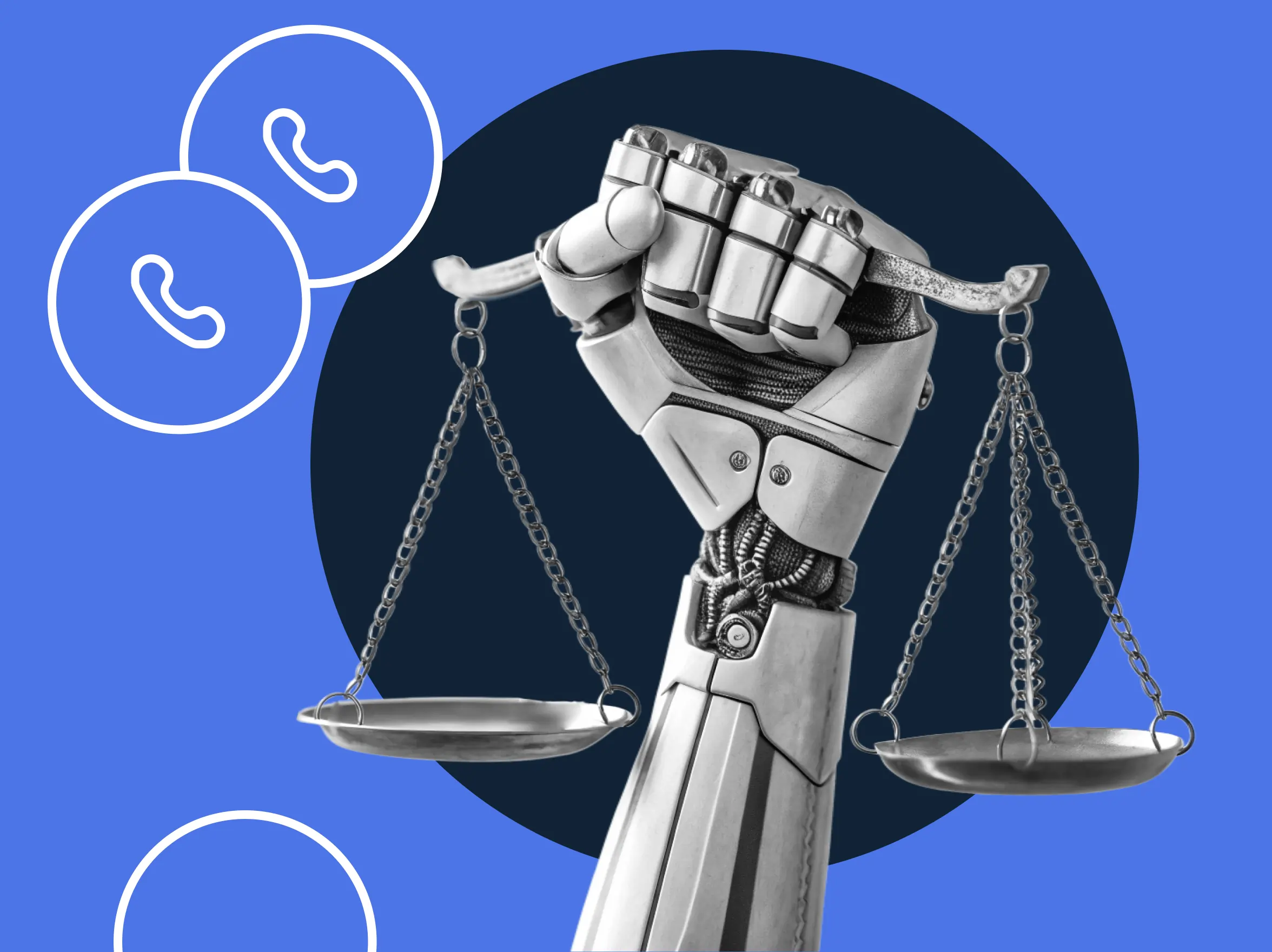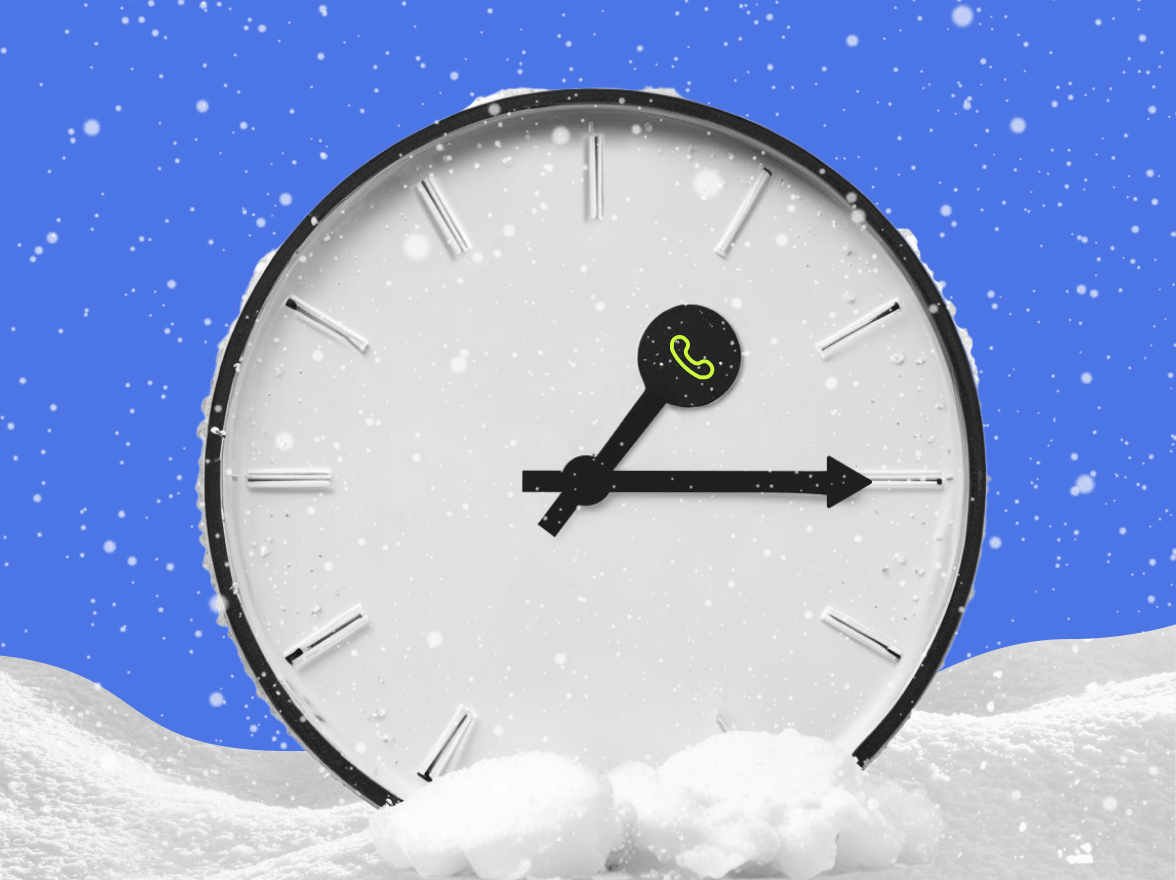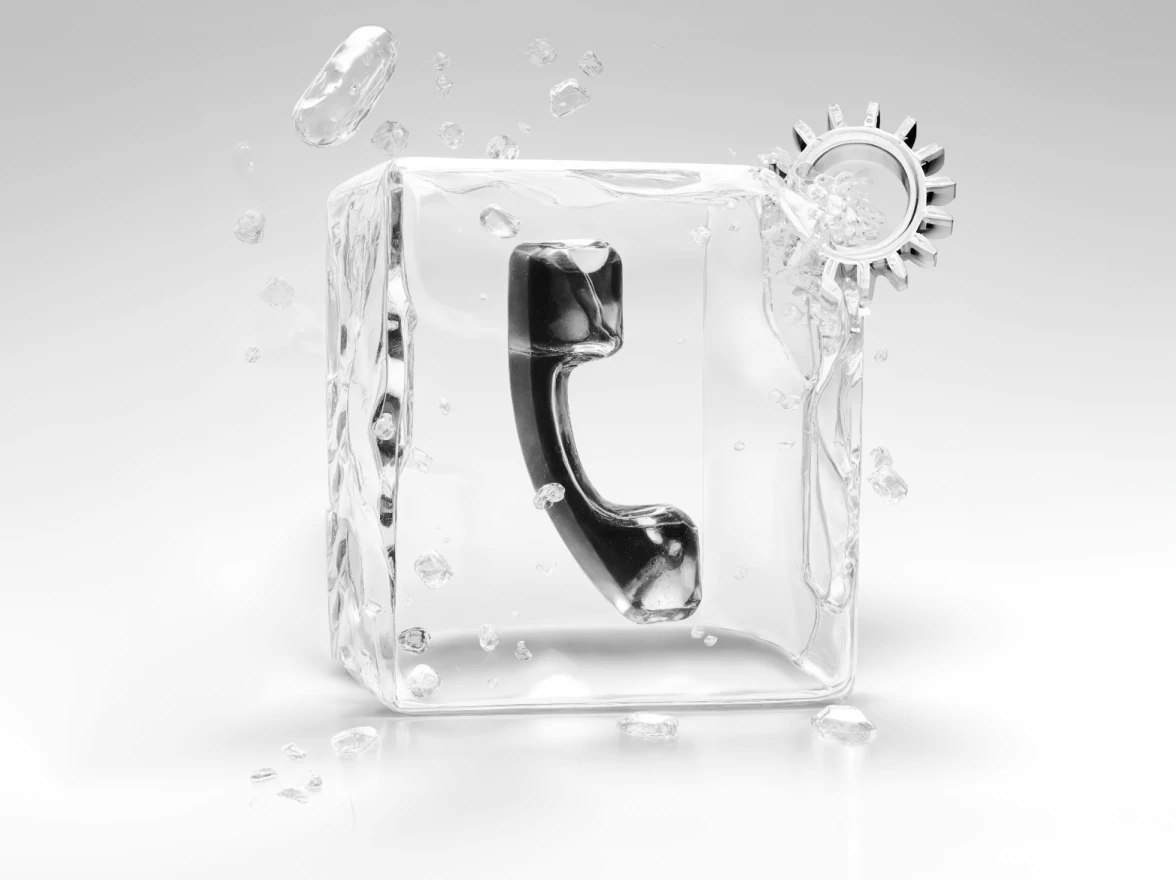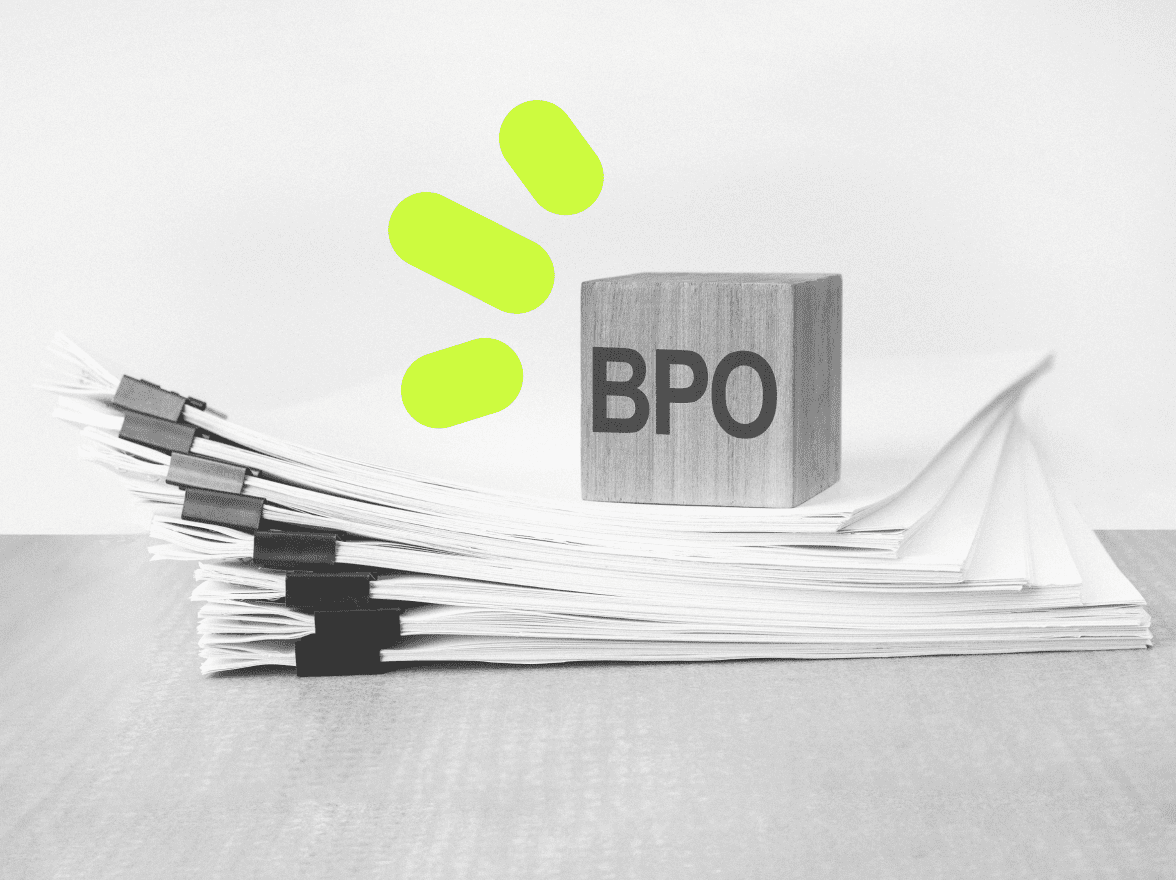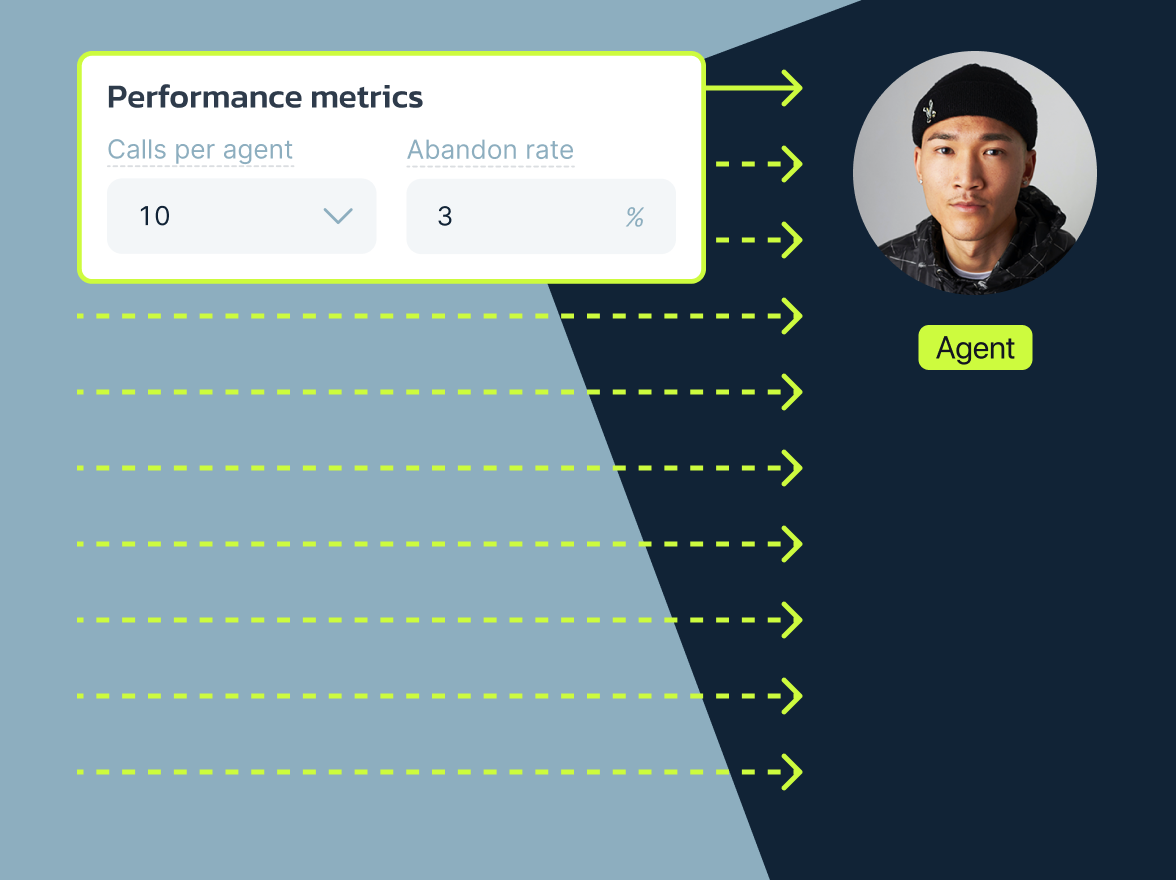The predictive auto dialer market is growing rapidly. Already valued at over $3 billion, it’s expected to grow even more in the coming years. Why? Because when it comes to reaching a large number of people in a small amount of time, auto dialers are tough to beat. Automatically dialing the next number with the click of a button (sometimes even without a click), even new agents can easily use this technology to contact tons of leads in a relatively short period. And with the number of people they speak to – an average of 33 per day – they’ll need all the dialing help they can get.
However, you cannot use auto dialers nonchalantly. When using the technology, you need to pay attention to special regulations. In the United States, that means federal and state laws. Are auto dialers illegal in the US? That’s a question many businesses ask, especially when exploring outbound marketing tools.
To help you get up to speed on what you can do and where, in this article, we’ll go over the key auto dialer regulations in America and abroad, especially when it comes to marketing and unsolicited calls.
What is an auto dialer, and how does it work?
Auto dialers are hardware or, increasingly, software that allows the user to dial a phone number automatically without manually typing the digits. When the contact called picks up, they can have a conversation with an agent.
These automatic dialing systems are frequently used, particularly by cold callers, customer service providers, political campaigns, and others. However, it’s important to be aware of the rules for using auto dialers, as improper use can lead to legal and compliance issues.
Numbers are usually stored natively, or uploaded to the business phone system’s software (though, with modern technology, numbers can sometimes be stored elsewhere, on a digitally connected server, depending on the provider). The dialer then works its way through the list of numbers.
Types of auto dialers
There are a few different auto dialer types. All automatically dial – as per the name – but each has a unique purpose:
- Preview dialers allow agents to view previously-input information about the person they are about to speak with. Before the call begins, your agent will be able to view the information.
- Progressive dialers make calls at a 1:1 call-to-agent ratio. The dialer will never make more calls than you have agents available.
- Predictive dialers make calls greater than a 1:1 call-to-agent ratio, allowing a campaign to be run very quickly by cutting down agent wait times. While it will make more calls than you have agents, it uses an algorithm to ensure that no one has to wait too long before being connected.
- Power dialers call the next number when an agent is available. However, “Power dialer” is a generic term which can also be used to describe predictive or progressive dialers.
- Smart dialers take past calls into effect when organizing calls; it may assign certain numbers to specific agents or may prioritize other numbers.
- Robo dialers act without agents – that is, pre-recorded messages “spoken” by a robot or by a person – calls to a large number of people. Be sure that you have prior approval for these, however, as making robocalls using an auto dialer legally is impossible otherwise.
The story behind auto dialer laws: from innovation to oversight
In the beginning…
The first commonly-used technology, which could be called an “auto dialer”, was created by Vincent Iannucci, an inventor who made a machine to quickly dial rotary phones in the early 1960s (there were older pieces of auto-dialing tech, but they were not widespread). Unfortunately for Iannucci, touch-tone telephones quickly made rotary phones obsolete.
Sales increase…
However, touch-tone phones did not eliminate the need for quicker dialing, and by the 1980s, with the rise of telemarketing sales, there was an industry need for quicker dialing. Phone sales passed mail-based sales at the beginning of the decade and never looked back.
…and regulations do too
But while people clearly were responding to phone-based sales, the incredible amount of money that could be made also gave way to abuse. Companies called at late (or early) hours or embraced otherwise problematic practices. By the early 1990s, this had led to increasing calls for the regulation. Thus, the first piece of real regulation was passed into law, affecting the legality of auto dialers: the Telephone Consumer Protection Act of 1991.
Are auto dialers illegal?
To get straight to the point: no, auto dialers are not illegal within the United States of America, no matter which state you are living in or calling to. However, the rules are important to follow, and they are complex.
Laws often focus on when calls are being made, how they are being made, and to whom the calls are being made. No one expects you to be a lawyer to follow these myriad rules; but if you get a service like MightyCall, you can help ensure your calls are TCPA-compliant by taking advantage of key features like the Do Not Call scrubber, which helps stay away from accidentally calling people who have requested not to be called. To use the scrubber, you just have to turn it on – but other features, like the call abandonment rate (which you can set at 3 percent, the legal maximum) only will work if you use them correctly.
schedule your personalized demo with our amazing team

Key points about auto dialers and the TCPA rules
What is the Telephone Consumer Protection Act (TCPA)?
Eventually, telemarketing became so commonplace that Congress was forced to act. That action resulted in the Telephone Consumer Protection Act, which passed Congress unanimously and was signed into law by President George H.W. Bush.
Purpose: The law protects consumers from unwanted contact and empowers the Federal Communications Commission (FCC) to carry out rules in-line with that intent.
Scope: The law applies to voice calls, texts, and faxes. One of the key aspects of the law was that the TCPA requires previous consent before being contacted with pre-recorded voices, which wiped out a lot of robocalls.
This law is still transforming. In 2024, the FCC updated the rules for auto dialer TCPA compliance to clarify that using AI-generated voices counts as pre-recorded—and is banned without prior consent.
What is an auto dialer under the TCPA?
The main aspects of American regulations come from the TCPA, which defines auto dialers, called in the law “Automatic Telephone Dialing Systems (ATDS)”. These systems are used “to store or produce telephone numbers to be called, using a random or sequential number generator; and…[used] to dial such numbers.” This is the key auto dialer TCPA rule, and it shaped the government’s approach to auto dialers for decades.
Recent changes
In 2015, the FCC made a change, ruling that systems which had the ability, but were not actively storing/producing telephone numbers, counted as auto dialers. This expanded the definition of what could be an auto dialer, and would have massively changed how auto dialers are regulated, as many people would have been out of compliance.
The Supreme Court steps in
The Supreme Court whittled down this move in the early 2020s. In Facebook v Duguid, they ruled that the FCC had adopted an overbroad opinion and that only machines which “[used] a random or sequential number generator” could be counted as having to comply with auto dialer regulations. They further held that systems that dial from a stored list or database do not count as auto dialers and therefore do not need to comply with the TCPA’s auto dialer rules and standards (at least when it comes to legally being defined as an auto dialer; callers still need to pay attention to things like when you can call).
Does the TCPA restrict the use of auto dialing software?
Are auto dialers legal, even with TCPA? Yes, but the TCPA restricts the use of auto dialing software, depending on the type of call, recipient, and technology used.
Key restrictions include:
Telemarketing calls:
- To cell phones: Auto dialer calls are legal, provided you get prior express written consent if using an ATDS or a prerecorded/artificial voice.
- To landlines: Require prior express written consent if using an artificial or prerecorded voice.
Informational/Non-Marketing calls:
- To cell phones: Require prior express consent if made with an ATDS or artificial/prerecorded voice.
- To landlines: Automatic phone dialers are not illegal here, even with prerecorded voices, unless for marketing.
Some of those changes, such as the differences between informational calls and marketing calls, came about as a result of complex legal decisions involving the FCC interpreting TCPA over a period of years. This does not make it any less legal: until an FCC decision is overturned by a court, such as the Supreme Court did in 2021, it has absolute force of law. Ignoring those rules is illegal.
TCPA auto dialer rules
As you now probably understand, the TCPA allowed the government to regulate federal auto-dialing operations far more than before. And while court decisions have trimmed some of those powers, TCPA rules are still pretty strict:
- Consent requirements: One of the most important rules is that you must obtain prior express consent before making autodialed or prerecorded voice calls to cell phones for informational purposes.
For telemarketing or advertising, prior express written consent is required. - Time restrictions: Calls may only be made between 8:00 a.m. and 9:00 p.m. (local time of the recipient). Calling outside these hours violates the TCPA.
- Use of artificial or prerecorded voices: As we mentioned previously, the FCC has ruled that the use of artificial voices in calls to residential or wireless numbers requires consent. Without it, these calls are prohibited unless specifically exempt (like calls from nonprofits).
- Prohibited call recipients: You can’t call just anyone. The law prohibits calls to emergency lines, hospitals or healthcare facilities, police departments, fire departments, and any other emergency service line.
- Abandoned calls: Predictive dialers that result in calls with no live agent must meet the FCC’s abandonment rules. In particular, to be compliant, you cannot have a greater than 3% abandonment rate over a 30-day period (you can set this in MightyCall to ensure you are in compliance). If no agent is available after two seconds, you must play a recorded message identifying the caller.
- Do Not Call (DNC) Registry Compliance: While the original TCPA did not explicitly create the DNC list, it laid the foundations. To be compliant with the DNC list—one of the key laws governing auto-dialers—telemarketers must adhere to the National DNC Registry, which means not calling numbers on it.
- Opt-out mechanism: Telemarketing calls using prerecorded voices must include a clear, automated opt-out mechanism within the message.
- Identification requirements: Callers must identify themselves as well as identify who they are calling on behalf of, and provide a telephone number that recipients can call back. Not doing so is illegal.
- Revocation of consent: People who were called can revoke consent at any time and by any reasonable method, such as verbally or in writing.
- Reassigned numbers: Callers are liable for TCPA violations if they call a number that has been reassigned—even if the original user had consented.
Penalties
Automated dialing laws wouldn’t be worth the paper they are printed on without some sort of enforcement mechanism. Penalties are financial in nature; the text of TCPA calls for a $1,500 fine per call. This is already relatively steep, but because auto dialers can make lots of calls, non-compliance can really cost you: 1000 calls would be $1.5 million.
Auto dialer laws by state
America is a federal republic, which means that, aside from federal law, state regulations also exist. As a result, each state has its own state auto dialer regulations which you will have to follow if you are making calls to or from those states.
An important thing to keep in mind is that these penalties “stack.” If you break federal and state laws, you are liable to be punished for both. This can dramatically ratchet up the fines you may be liable for.
Here is a selection of the key states:
| State | Relevant Regulations | Penalties |
|---|---|---|
| California |
|
$500 per violation, $1500 if knowingly willful |
| New York |
|
High fines: up to $20,000 |
| Florida |
|
$500 per violation, $1500 if knowingly willful |
| Texas |
|
$500 per violation. Higher (varied) if knowingly willful |
| Illinois |
|
$500 per violation; if individuals can prove illicit activity, damages can be greater |
| Washington (state) |
|
$100 per violation, and $1,000 for repeated violations |
| Georgia |
|
Up to $5,000 per violation |
| Pennsylvania |
|
From $1,000 to $3,000 per violation, depending on the age of the person called |
| Virginia |
|
From $2500 to $7500 per violation of the national DNC list (adopted by VA) |
How to find the right information about the legality of auto dialing for a particular state?
How to go about using an auto dialer in call center compliance with the law will vary from one place to the next, as auto dialer regulations aren’t the same everywhere. But finding out whether telemarketing is permitted in your area isn’t all that hard. Here are a few places you can turn to for reliable information:
- Local Utility Authorities: Your area’s Public Utility Commission may provide guidance or resources on telemarketing rules and restrictions.
- City or Township Websites: Local government portals often publish up-to-date regulations and can be a helpful starting point for understanding regional compliance requirements.
- Legal Experts: Contacting an attorney, especially one familiar with consumer protection or telecommunications law, can ensure you’re following the rules correctly.
- Professional Associations: Trade groups like the American Teleservices Association or other industry bodies can offer compliance resources and advice to help keep your outreach efforts within legal limits.
Exceptions to auto dialer rules and regulations
Like with any law, the TCPA and other federal laws have exceptions. Auto dialer rules in the US allow certain uses while prohibiting others:
- Emergency communications: Calls made for emergency purposes, such as public safety alerts or disaster notifications, are exempt from TCPA restrictions
- Political calls: Political campaigns can use auto dialers for calls to landlines without prior consent. However, calls to wireless numbers require prior express consent.
- Nonprofit outreach: Tax-exempt nonprofit organizations can make calls without prior express consent, provided the calls are non-commercial and not for solicitation
- Established Business Relationships (EBR): Calls to individuals with whom a business has an existing relationship may be exempt, though restrictions still apply, especially for wireless numbers
- Manual dialing: Calls made manually without the use of an auto dialer or prerecorded voice are not subject to TCPA restrictions
- Healthcare messages: Calls delivering healthcare-related messages, such as appointment reminders, made by or on behalf of covered entities under HIPAA are exempt
- Business-to-Business calls: These can be legal, but there are still TCPA-related rules here (like following the national DNC list)
Auto dialer laws and regulations around the world
Outside of the US, auto dialing laws vary widely. Other countries have their own rules. To use your auto dialer, check out our short summary of the rules below:
| Region | Key Regulations | Penalties |
|---|---|---|
| European Union (GDPR) | GDPR requires explicit consent for all telemarketing activities, including auto-dialed calls to individuals | Fines up to 4% of annual global turnover or €20 million |
| Canada (CASL) | The Canadian Anti-Spam Legislation (CASL) regulates auto dialers and requires express consent for marketing calls | Fines up to $10 million per violation |
| United Kingdom (PECR) | The Privacy and Electronic Communications Regulations (PECR) limit marketing calls and require prior consent | Fines up to £500,000 for serious violations |
| Mexico (FCPL) | Federal Consumer Protection Law (FCPL), which created Mexico’s equivalent of the Do Not Call list. The Federal Law on the Protection of Personal Data Held by Private Parties requires telemarketers to get explicit consent when using personal data for marketing purposes | Penalties vary widely, though can get up to around $70,000 per infraction |
Costly auto dialer mistakes and how to prevent them
You have probably gathered that auto dialers are regulated pretty tightly and that violations can cost you. Here are some of the biggest mistakes people make – and how to make sure you don’t make the same ones:
Mistake #1: Failing to obtain proper consent
Many businesses overlook the requirement to obtain prior express consent before dialing mobile numbers, especially with auto dialers; it is illegal to use an auto dialer without consent. Not obtaining consent can result in significant fines under regulations like the TCPA.
Always ensure you have documented consent from the customer before making any auto-dialed call to their mobile number.
Mistake #2: Calling numbers on the DNC
Maintaining compliance with auto dialer regulations means not calling numbers on the National Do Not Call (DNC) list. Failing to check against the DNC list can lead to violations and steep penalties.
To prevent this, verify phone numbers against the current DNC list and implement automated processes to block calls to registered numbers. MightyCall’s built-in DNC list scrubber ensures you remain in compliance.
Mistake #3: Not following time restrictions
Auto dialer legalities typically restrict calling hours, especially in certain time zones. Calling outside allowed hours can lead to consumer complaints and penalties.
To stay compliant, always configure your auto dialer (via MightyCall’s Call Campaign Scheduling Feature) to respect the acceptable time windows for calls in different regions or time zones.
Mistake #4: Using auto dialers to call emergency services
Some businesses mistakenly use auto dialers for non-essential or marketing calls to emergency services, healthcare facilities, or numbers like 911.
Avoid this by setting up your system to exclude emergency numbers, ensuring that your calls are strictly for permitted purposes.
Mistake #5: Disconnecting your calls at the wrong time
An auto dialer that doesn’t properly detect hang-ups or drops calls too soon may violate rules related to abandoned calls. The rules mandate that a call be answered within two seconds or disconnected to avoid abandonment penalties.
Regularly test your auto dialer system to ensure it accurately detects call disconnections and does not exceed the allowed abandoned call rate.
Best practices to use auto dialers legally and responsibly
To keep your auto dialer in compliance with regulations, pay attention to these tips:
- Keep accurate records of consumer consent: Ensure you maintain clear, up-to-date records of all customer consents for auto-dialed calls. This will help protect your business in case of complaints, and can serve as proof that you’ve complied with the rules.
- Regularly update your call lists: Ensure your call lists are updated frequently to remove numbers that are no longer valid or have opted out. Using outdated data can lead to accidental violations, particularly with phone numbers that have changed owners or been registered on the Do Not Call list.
- Limit the use of pre-recorded messages: Use pre-recorded messages sparingly. In some jurisdictions, calls made with pre-recorded voices require specific consent or are only allowed for informational purposes. Always verify the purpose of your call before using an automated message.
- Implement a “Do Not Call” mechanism: Make it easy for recipients to opt out of future calls by providing a simple way to request being added to your internal Do Not Call list. This helps ensure ongoing compliance and prevents further communication with individuals who no longer wish to receive calls.
- Monitor call frequency and volume: Track the frequency and volume of your calls to avoid exceeding the limits set by telemarketing regulations. Overloading a system with too many calls could be seen as harassment or result in non-compliance with auto dialer regulations.
- Comply with local telemarketing laws: Telemarketing laws can and DO differ by state or country. Make sure your auto dialer settings and practices align with the specific regulations in each area where you are calling to, including local restrictions on call hours, frequency, and content (pay special attention to time zones!).
Turning compliance into opportunity
But that doesn’t mean it’s easy to use them. Auto dialer laws are complex, and can be difficult to get a full picture of them. We hope that this guide has helped you to understand the web of rules and regulations. To maximize your chances of not violating the law, get a service like MightyCall’s, which lets you set a cap of 3% for the abandonment rate and provides a DNC list scrubber, among other features. If you’re even more concerned, talk to a lawyer to make sure you’re 100% in compliance.



